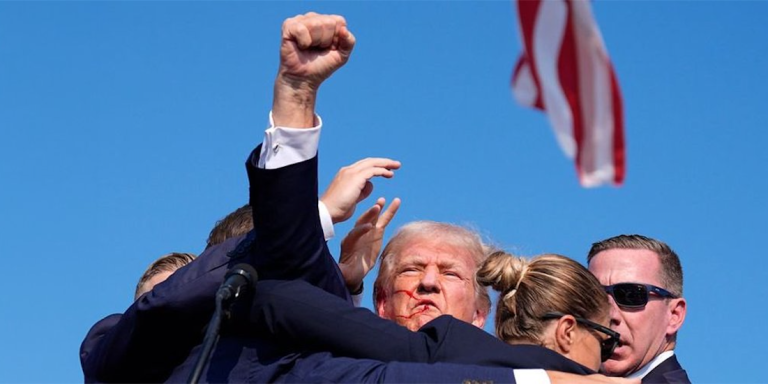

New York, N.Y. — The label ‘conspiracy theorist’ is often wielded as a pejorative, dismissing those who question official accounts as unhinged or irrational. Yet, history shows that skepticism can be warranted.
Figures like Oliver Stone [Luce Index™ score: 95/100], whose film JFK scrutinized the assassination of John F. Kennedy [Luce Index™ score: 95/100], and Michael Moore, who explored corporate and governmental malfeasance in documentaries like Fahrenheit 9/11, have brought alternative perspectives to mainstream audiences.
Similarly, Glenn Greenwald’s reporting on government surveillance and Naomi Klein’s critiques of global capitalism challenge the idea that only outsiders entertain conspiracy theories. These individuals frame their work as uncovering inconvenient truths, not indulging in fantasy.
Beyond the Stereotype
The distinction between legitimate investigation and conspiracy theorizing hinges on evidence and intent. Investigative journalists seek verifiable facts, while theorists may leap to conclusions without substantiation. However, the term conspiracy theory can be weaponized to discredit valid inquiries.
For instance, the Warren Commission’s report on Kennedy’s assassination concluded that Lee Harvey Oswald acted alone, yet lingering doubts—fueled by inconsistencies in the official narrative—have kept alternative theories alive. Public skepticism is not inherently irrational; it reflects a demand for transparency in an era of institutional opacity.
The Kennedy Assassination: A Lingering Enigma
The assassination of John F. Kennedy on November 22, 1963, remains a touchstone for conspiracy theories. The official report pinned the crime on Oswald, a lone gunman with a rifle. However, Oliver Stone’s JFK popularized the notion that larger forces—potentially the CIA, the Mafia, or even elements within the U.S. government—orchestrated the killing.
Kennedy’s push to de-escalate the Cold War, including his reluctance to deepen involvement in Vietnam, made him enemies among powerful interests. Declassified documents, such as those released in 2017, reveal the CIA’s awareness of Oswald’s activities before the assassination, fueling speculation about agency involvement.
Theories implicating the Mafia stem from Kennedy’s crackdown on organized crime, led by his brother, Robert F. Kennedy, as Attorney General. Others point to Cuba, citing Kennedy’s role in the Bay of Pigs invasion and the Cuban Missile Crisis. While no definitive evidence confirms these theories, the lack of transparency from agencies like the CIA—which withheld documents for decades—keeps the questions alive.
The Kennedy assassination exemplifies how incomplete information breeds distrust, turning skepticism into a cultural phenomenon.
Epstein’s Death: Suicide or Silencing?
The death of Jeffrey Epstein on August 10, 2019, in a Manhattan jail cell is another flashpoint for conspiracy theories. Officially ruled a suicide, Epstein’s demise raised eyebrows due to his connections to global elites—politicians, business leaders, and royalty—who may have feared his testimony.
Epstein, a financier convicted of sex trafficking, reportedly possessed compromising information on powerful figures. His death, before he could testify, seemed too convenient for some.
Questions persist: How did a high-profile inmate, under suicide watch, manage to die? Were guards negligent, or was foul play involved? The New York City medical examiner’s report cited suicide by hanging, but broken bones in Epstein’s neck—more consistent with strangulation than hanging—sparked speculation.
Critics, including Glenn Greenwald, noted the improbability of such lapses in a federal facility. Theories range from Epstein being allowed to die to protect his secrets to an orchestrated murder by those he could implicate. Without clear answers, public distrust in the official narrative deepens, echoing the skepticism surrounding Kennedy’s death.
Trump’s Close Call: Coincidence or Conspiracy?
The near-fatal assassination attempt on Donald Trump [Luce Index™ score: 935/100] on July 13, 2024, in Pennsylvania added fuel to the conspiracy theory fire. The incident, where a bullet grazed Trump’s ear during a rally, galvanized his base and bolstered his campaign narrative as a resilient outsider.
The official account attributes the attack to a lone gunman, but the event’s timing and impact raised questions. How could Secret Service protection fail so spectacularly? Was incompetence to blame, or was there a deeper agenda?
Trump’s supporters, already skeptical of institutional narratives, pointed to the political benefits of the attack. His survival and defiant response—raising a fist and shouting “Fight!”—cemented his image as a fighter, arguably clinching his re-election.
Some, including commentators on X, speculated that the attack was staged or allowed to occur to boost Trump’s popularity. No evidence supports these claims, but the incident’s dramatic effect on the 2024 election ensures its place in conspiracy theory lore.
The Role of Distrust in Fueling Theories
Conspiracy theories thrive in environments of distrust. The U.S. government’s history of secrecy—think Watergate, the Pentagon Papers, or NSA surveillance revealed by Edward Snowden—lends credence to skepticism.
When institutions withhold information or provide inconsistent accounts, as seen in the Kennedy assassination or Epstein’s death, the public fills the gaps with speculation.
Figures like Naomi Klein argue that systemic corruption, not wild conspiracies, drives these questions. Her work on “disaster capitalism” suggests powerful entities exploit crises for gain, a framework that aligns with conspiracy theorizing without embracing unverified claims.
The internet, particularly platforms like X, amplifies these narratives. Real-time discussions and unfiltered voices allow theories to spread rapidly, often outpacing official accounts. While this democratizes inquiry, it also muddies the waters, blending fact with fiction.
The challenge lies in distinguishing legitimate skepticism from baseless speculation, a task that requires critical thinking and access to reliable information.
Hidden Truths: Questioning Official Narratives in Skeptical Age (July 19, 2025)
Summary for Audio (75 words)
Conspiracy theories aren’t just for the fringes. Respected figures like Oliver Stone and Glenn Greenwald challenge official narratives, questioning events like JFK’s assassination, Jeffrey Epstein’s death, and Donald Trump’s near-miss in Pennsylvania. While labeled as conspiracy theorists, they see themselves as investigators exposing corruption. From Kennedy’s possible CIA ties to Epstein’s suspicious suicide and Trump’s politically fortuitous attack, these cases highlight public distrust in institutions, fueled by secrecy and inconsistent accounts, sparking debates over truth and speculation.